Mr. President,
The time for illusions has long passed. The President of the United States, Donald Trump, recently made a baseless and frankly bizarre allegation that Christians are being systematically exterminated in Nigeria. It is a dangerous fiction, designed not to save lives but to soften the moral ground for intervention. This is the same script: rehearsed, refined, and replayed, used to justify every imperial adventure since the Second World War. From Baghdad to Tripoli, from Damascus to Caracas, the lines are always the same: exaggerate a local crisis, weaponise humanitarian concern, isolate the target government, and then bring in the so-called liberators. But behind that velvet rhetoric of freedom and faith always stand the same blood-soaked hands of power and profit. The claim of Christian persecution in Nigeria is not a concern for faith,it is a pretext for force.
You must understand, Mr. President, that this is not conjecture. The empire does not need truth to act, it needs only a narrative that sounds righteous enough to disguise its hunger. Saddam Hussein was accused of harbouring weapons of mass destruction; Muammar Gaddafi was accused of preparing a genocide against his own people. Both men believed they could reason with Washington, play by its diplomatic rules, and buy time through compliance. They were wrong. Baghdad was turned into a mausoleum. Libya, once the most prosperous nation in Africa, is now a dismembered corpse, a land of militias and open-air slave markets. The lesson is bitter but clear: the United States does not destroy because it must, it destroys because it can.
The tragedy of Saddam and Gaddafi was not simply that they stood against the West; it was that they underestimated its capacity for deceit. They tried to survive within the Western framework, hoping that concession would earn them security. They dismantled their nuclear and missile programmes, opened their economies to Western advisers, and even handed over intelligence in the name of cooperation. The result was annihilation. The West has never respected weakness. The price of trust was death.
Contrast that with the nations that refused to kneel. North Korea, Pakistan, Iran, China, Russia, countries that decided, at different times and under different pressures, that survival requires teeth. They understood that sovereignty in a world of predators cannot depend on pity. It must rest on deterrence; on the credible capacity to make any aggressor pay an unbearable price. This is not aggression; it is self-defence at the level of civilisation. Power respects power, not pleas.
Pakistan provides a practical lesson. A poor country by most standards, divided by history and beset by internal challenges, yet no one dares to dictate to Islamabad. Why? Because it built a nuclear shield. It made the strategic decision that national dignity and independence are worth more than Western aid or applause. For decades, it endured sanctions, diplomatic isolation, and propaganda. But it survived, and today, even Washington treats it with caution. No American president dares to speak of “invading” Pakistan, because the cost would be too high.
The same logic applies to Venezuela. Despite relentless economic sabotage and attempted coups, the Venezuelan state still stands. Its people have suffered terribly, yet they have not surrendered their sovereignty. They survive because they diversified their alliances, turning eastwards to Moscow, Beijing, and Tehran. They understood that in a world returning to multipolarity, salvation does not lie in Washington’s approval but in strategic alliance.
Mr. President, Nigeria now stands at a similar crossroads. Our size, resources, and strategic position make us both envied and targeted. We are too rich to be ignored, too disorganised to be respected, and too naïve to be safe. The old unipolar order, dominated by the United States, is collapsing under its contradictions. New centres of power: China, Russia, India, Iran, are emerging. The balance of the world is shifting. But only nations that move early will find shelter in the coming storm. The rest will be swept aside as collateral damage.
Let us be honest about our vulnerability. The pretext for intervention is already being drafted in American think tanks: “religious persecution,” “democratic backsliding,” “security failure.” These are not diagnoses; they are weapons. Once they dominate the headlines, the military deployments follow; first “advisers,” then “trainers,” then drones, then bases. The world has seen this movie before, and it never ends with sovereignty intact.
Nigeria’s salvation lies not in denying this threat but in preparing for it. It is no longer a question of if but when Uncle Sam will come knocking. To be forewarned is to be forearmed. We must now move decisively to guarantee the republic’s survival. That means one thing above all: build alliances strong enough to deter aggression before it begins.
You must look East, Mr. President, not out of ideology, but out of realism. The West’s friendship is conditional; the East’s partnership is transactional but predictable. Moscow and Beijing are not sentimental actors, they deal in interests. They do not demand conversion to their values, only commitment to mutual benefit. That is the foundation of modern diplomacy: sovereignty in exchange for respect. The United States demands obedience. Russia and China ask for cooperation. The choice is existential.
It is time, therefore, to pursue with urgency a formal defence pact with the Russian Federation and the People’s Republic of China. This must go beyond ceremonial visits or vague memoranda. Nigeria should establish clear frameworks for joint military training, technology transfer, intelligence sharing, and arms production. We should invite Chinese and Russian military advisers to integrate with our defence institutions, not as masters but as partners. Our airspace and maritime corridors must be defended by systems beyond the reach of Western control; long-range radar, electronic warfare capabilities, anti-air missile defences, and indigenous production of drones and armaments. The aim is simple: make Nigeria too costly to attack.
This is not warmongering; it is strategic sanity. The same logic underpins every strong state on Earth. Deterrence prevents war by making invasion unprofitable. A weak Nigeria tempts intervention; a strong Nigeria commands respect. Our current posture: dependent on Western intelligence, reliant on imported arms, and exposed through financial dependency, is unsustainable. The moment we are perceived as disobedient, they will turn our own vulnerabilities into justifications for “humanitarian intervention.”
We must also reconfigure our economy to withstand external shocks. The dollar is no longer sacred. Nations are trading in their own currencies; we must join them. We should accelerate the establishment of currency swap agreements with China, Russia, and other BRICS partners. Our crude oil should not be priced solely in dollars but in a basket of currencies. The financial noose must be loosened before it becomes a weapon.
Mr. President, do not be deceived by flattering diplomacy. When Western leaders smile, they are calculating. When they praise, they are preparing. The same institutions that once armed dictators in Africa are today funding lectures about democracy. They will always prefer a pliant Nigerian elite to a strong Nigerian state. You must choose which side of history to stand on. You can either be remembered as the president who preserved Nigeria’s independence or as the one who let her be recolonised under the banner of human rights.
The age of neutrality is over. The United States no longer tolerates independent African states. it wants clients, not partners. The only safety now lies in strategic depth. Russia and China are building that depth together; others are joining. Iran survived because it prepared early. North Korea, mocked and sanctioned, still lives because it refused to disarm. Cuba, battered by six decades of embargo, still stands because it never bowed. The lesson of the century is plain: prepare for war if you want peace.
This does not mean abandoning diplomacy. It means negotiating from a position of strength. Nigeria should signal to the world that it will cooperate with all but submit to none. That requires courage; the kind that can face Western outrage without blinking. It requires clarity. The understanding that development and defence are not separate projects but two sides of sovereignty. And it requires conviction—that the destiny of 220 million Africans cannot be outsourced to the approval of foreign powers.
The coming years will test the mettle of your leadership. You will face immense pressure to “choose the right side of history,” as they like to say. Remember that their “right side” is usually the side that keeps Africa down. If you bow, you will gain applause and lose your nation. If you stand, you will be vilified but remembered as a patriot. The West rewards obedience and forgets its servants. The East respects strength and remembers its allies.
Nigeria must not repeat the mistakes of those who trusted Washington’s mercy. Saddam trusted, and Iraq fell. Gaddafi trusted, and Libya bled. Both believed that compliance was safety. Both were wrong. The only defence against empire is preparedness. A state that cannot defend itself will be redesigned by others. A people that cannot deter aggression will be pacified by occupation.
You have the chance to change that story. You have the chance to position Nigeria not as a playground for great powers but as a pole of its own: a bridge between Africa and Eurasia, a nation respected not for wealth alone but for the will to defend it.
Mr. President, history rarely gives warnings twice. The drums are already beating faintly in Washington and London. Their media has begun to rehearse the language of intervention: “religious cleansing,” “security failure,” “threat to democracy.” This is how it begins. If you ignore it, one day you will wake up to find foreign drones circling our skies in the name of peace. If you act now, you can make sure that day never comes.
The world is no longer unipolar. Power has dispersed; opportunity has returned. You must seize it. Forge alliances, fortify the state, and free Nigeria from dependency. Build the defence pact. Diversify the economy. Prepare for the worst so that we may preserve the best.
Because when Uncle Sam comes calling, and he will, it must be to find not a submissive colony but a sovereign nation, ready, united, and armed with both wisdom and will.
History is watching, Mr. President. And it will not forgive another naïve leader who mistook polite smiles for friendship. The world belongs to those who can defend it. Nigeria’s destiny will belong to those who refuse to kneel before gangsters in fancy suit.



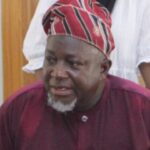



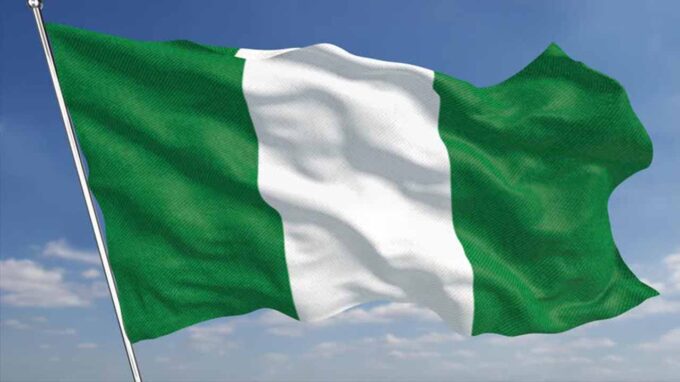
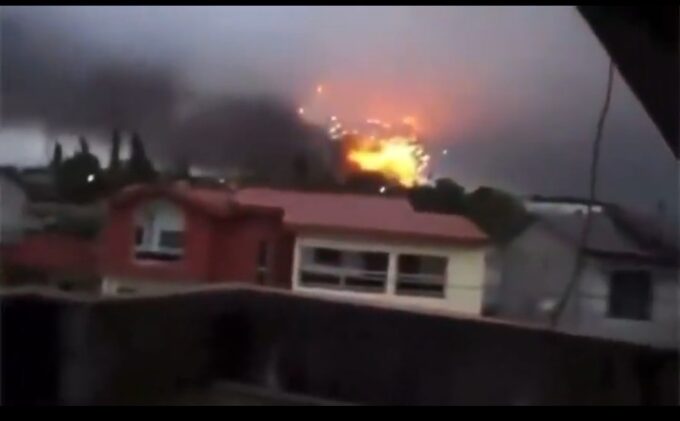
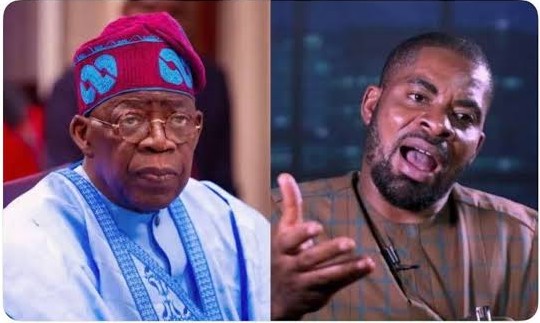
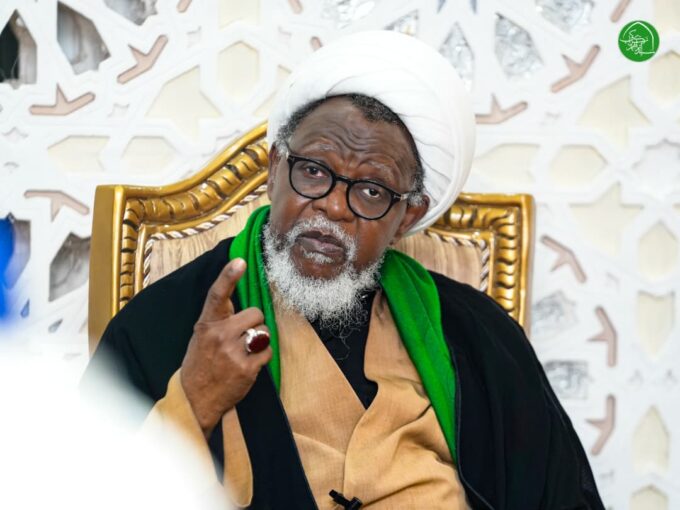




Leave a comment